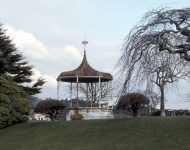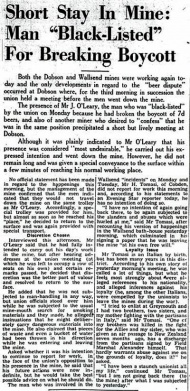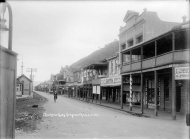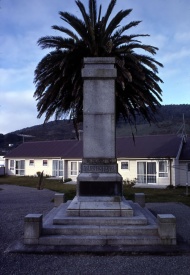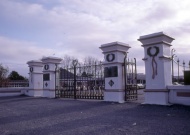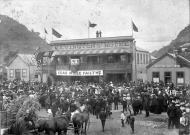Articles
1947 Greymouth beer boycott

What would it take for West Coasters to boycott their beloved beer? Greymouth hotel-keepers found out in 1947, when an organised attempt to raise the price of beer sparked one of the most effective consumer boycotts ever seen in New Zealand.
-
Page 2 – Pub culture
Between 1919 and 1967 all public hotels in New Zealand officially closed at 6 p.m., but these hours were only nominally observed on the West Coast.
-
Page 3 – The boycott begins
In mid 1947 there were rumours that the price of beer was about to rise. It was a decision that no publican wanted to take alone because customers might move to another hotel
-
Page 4 – Industrial action
After the first week of the Greymouth beer boycott it became clear that the Licensed Victuallers' Association (LVA), supported by the breweries, was not going to yield.
-
Page 5 – Working Men’s Clubs
A number of Working Men's Clubs had been established in major urban areas since the late 19th century, but there were none on the West Coast. The beer boycott provided a
-
Page 6 – End of the 1947 beer boycott
By early December 1947 business was gradually returning to some pubs in the larger towns, but the boycott was still effective in smaller centres.
-
Page 7 – Further information
This feature was written by Simon Nathan with assistance from Margaret Hurst (National Library of New Zealand), and produced by the NZHistory.net.nz team. A note on
The 1913 Great Strike

The Great Strike of 1913 was in fact a series of strikes between mid-October 1913 and mid-January 1914. It was one of New Zealand’s most violent and disruptive industrial confrontations.
- Page 6 - The 1913 strike in the South IslandAlthough the 1913 strike had its biggest impact on Auckland and Wellington, the South Island's cities and mining towns were also
Related keywords
The largest town and administrative centre of the West Coast, near the mouth of the Grey River/Māwheranui, and 233 km west of Christchurch. Squeezed between the hills, the river and the sea. James Mackay negotiated with local Māori chiefs for purchase of the West Coast region by the government, and the agreement was signed at Māwhera pā on 21 May 1860. One of the few Māori reserves was the land around the pā, now forming the main business district in Greymouth, and most of this still remains in Māori ownership. With the discovery of gold in the Taramakau valley to the south in 1864–65 and subsequent gold rushes the settlement grew. Coal was exported from the port of Greymouth from the 1870s, followed by timber. These provided the foundation for the local economy as the boom days of gold passed. By 1881 the population of Greymouth was greater than Hokitika’s, and since then it has been the largest centre on the West Coast.



